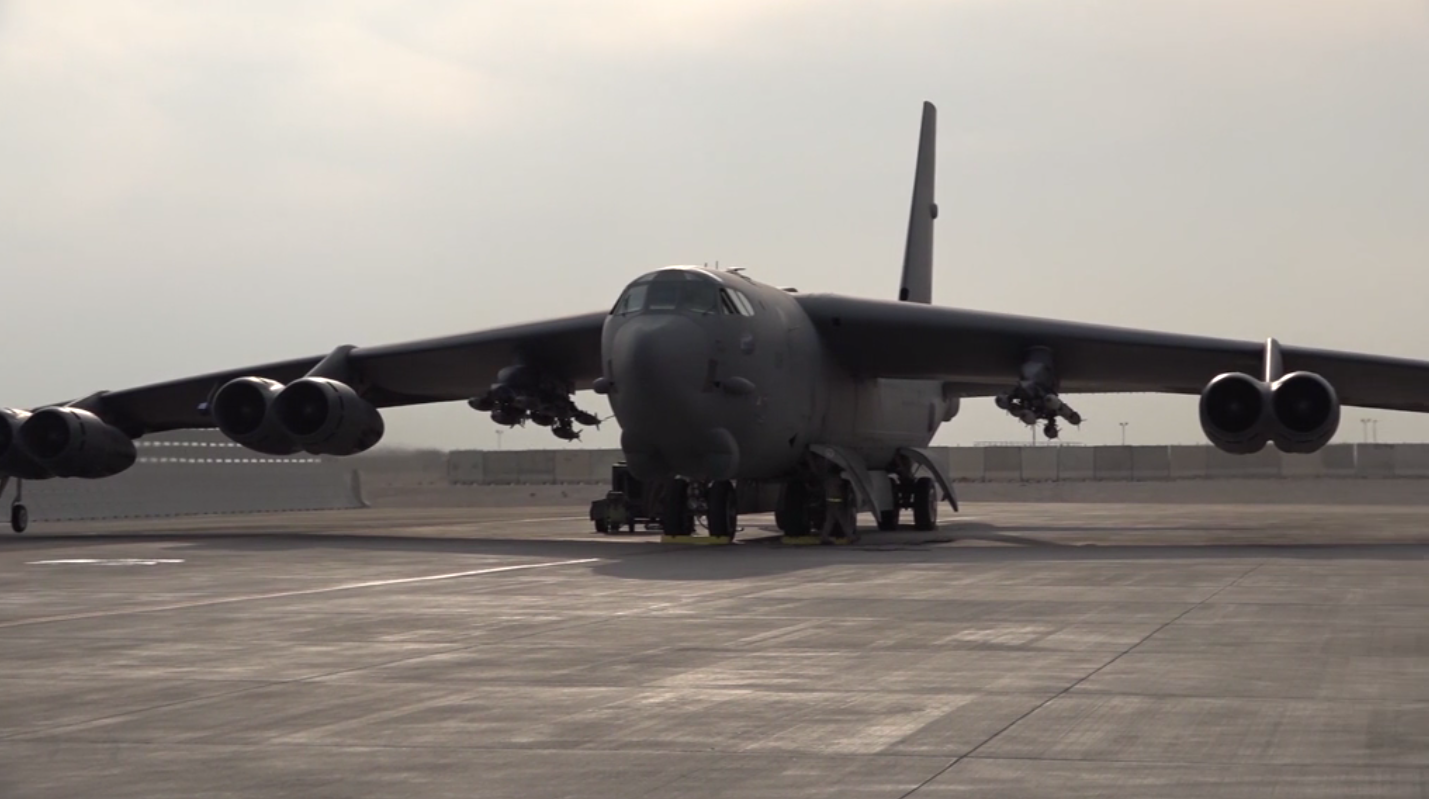
A B-52 readies for a mission in support of Operation Jagged Knife at Al Udeid AB, Qatar. Screenshot from Air National Guard video (below).
The US effort to hit the Taliban’s drug production has continued since the opening salvo in November, with now 25 narcotics processing facilities destroyed and about $80 million eliminated from the group’s pockets.
The “sustained air interdiction campaign” is the first time the US has targeted the Taliban’s revenue, and it “directly strengthens the Afghan defense forces” in their continued fight, said USAF Brig. Gen. Lance Bunch, the director of future operations with Operation Resolute Support.
While the Afghan Air Force kicked off the campaign with A-29 strikes on Taliban locations, the biggest wave came from aircraft not usually used in Afghanistan—B-52s and F-22s. The Nov. 19 B-52 strike was the first time that aircraft used its conventional rotary launcher in Afghanistan, delivering the largest number of precision munitions from a Stratofortress in its history, Bunch said.
A B-52 Stratofortress assigned to the 379th Air Expeditionary Wing, Al Udeid AB, Qatar, taxis and takes off in order to participate in a new offensive campaign in Afghanistan on Nov. 19, 2017. Air National Guard video by SSgt. Aubrey Griffin.
_
The stealthy, air superiority-focused F-22 was used in the opening salvo, and continued bombings, because it can carry small diameter bombs. US forces needed the most precise weapon it had at its disposal for some of the strikes and the F-22 was available at the time, even though F-15Es also carry the weapon. In addition to these aircraft, F-16s, US Marine Corps High Mobility Artillery Rocket System, and Navy F/A-18s have conducted strikes as part of the effort to hit the Taliban’s drug infrastructure.
The operation—called Jagged Knife—is supported by “over the horizon” flights from USAF JSTARS aircraft, along with intelligence, surveillance, and reconnaissance aircraft and aerial refuelers based inside Afghanistan and elsewhere in the Middle East, Bunch said
Bunch leads Resolute Support’s newly created future operations office, or FuOps. It was created as part of the US government’s new South Asia strategy, and move away from time-based planning to a “conditions-based” future in Afghanistan. While the sustained air interdiction campaign, and a new build up of US forces in the country, is focused on fighting the Taliban’s momentum, the war is still at a “stalemate,” US Forces-Afghanistan commander Gen. John Nicholson told NBC News late last month.